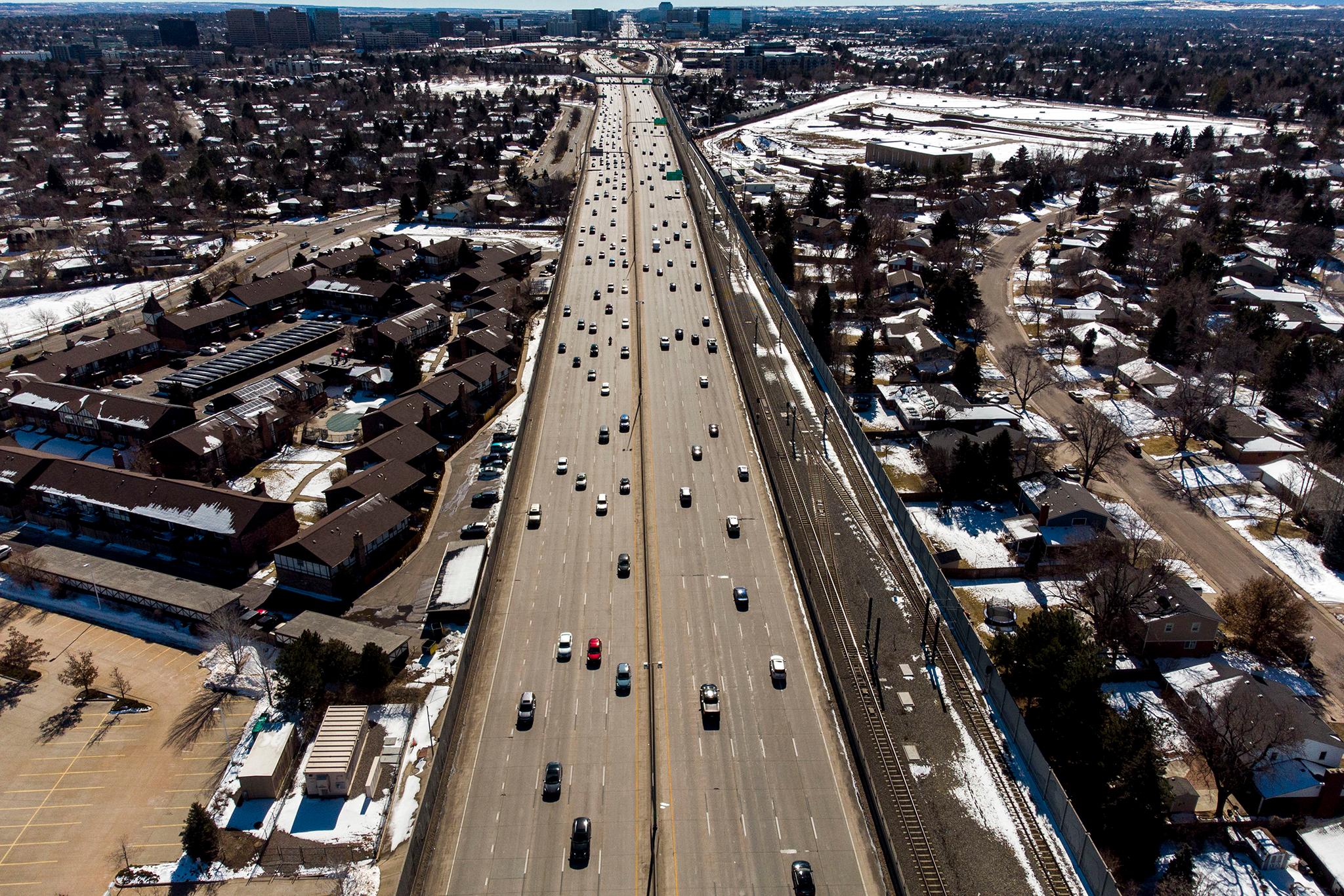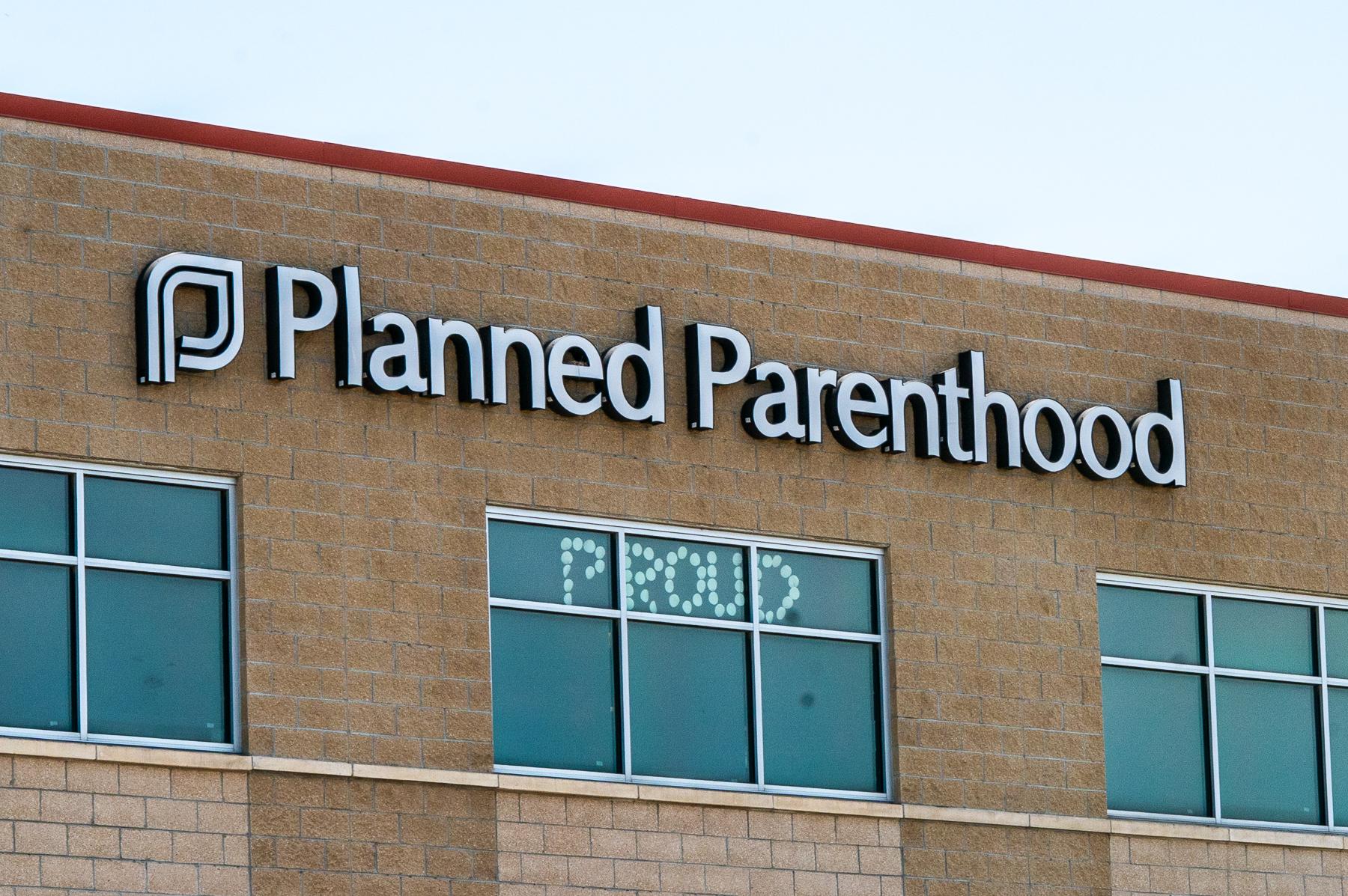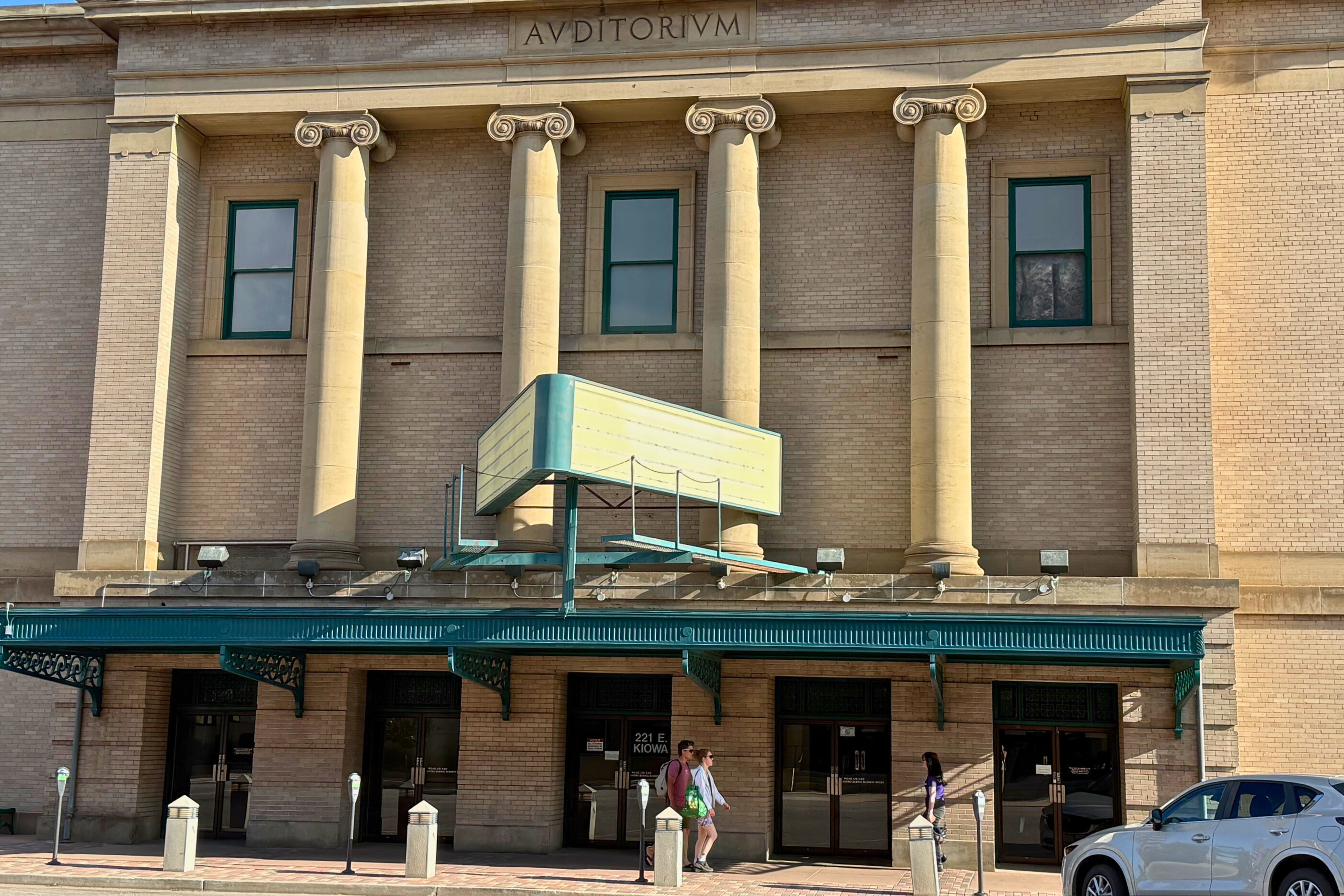
A multi-billion-dollar plan for highways, transit and electric cars faces a new legal challenge in Colorado. The outcome may affect lawmakers’ ability to pay for big items without getting direct voter approval.
The lawsuit focuses on a 2021 law, Senate Bill 21-260 that will raise more than $5 billion in new revenue for transportation — without first asking voters. The lawsuit argues that the plan should have gone before voters, rather than being passed at the legislature.
“Voters should be deciding. You should be making the case to them on why … money should be going to roads or should go to transit,” said Michael Fields, a member of the Republican and right-wing coalition pressing the lawsuit. “This should be a conversation with voters, not just the legislature.”
The new transportation money comes from fees — extra charges that consumers will pay on gas, Uber rides and online delivery services. Unlike taxes, fees do not have to be approved by voters in Colorado.
Democrats have increasingly embraced fees as a way to pay for projects and programs. A fee is defined as a cost that is collected by a government “enterprise,” which then must be spent on a cause related to the fee itself. For example, fees on Uber rides might go toward better roads.
Meanwhile, conservatives have tried to hit the brakes by passing Proposition 117, a ballot measure that put limits on the use of fees. The lawsuit filed this week argues that the new transportation spending plan violated Prop. 117 through fiscal engineering.
Under Prop. 117, voters must approve the creation of any enterprise that is expected to collect more than $100 million in fees in its first five years. But the transportation plan didn’t trigger the requirement because of the way the money will be collected and spent.
The lawsuit argues this was a “sleight of hand.”
For example, the new retail delivery fee was expected to collect $76 million from a total of 281 million deliveries in a single year. That would easily be enough to trigger the voter-approval requirement — except the money is being divided up among different enterprises for different uses, and no single enterprise will get enough money to trigger the requirement.
Democratic Sen. Faith Winter, a sponsor of SB-260, said that approach is “actually the way that we’re following the law. It’s not a trick.”
The money is divided up because “the goals and the outcomes of each enterprise are different,” Winter said. The different enterprises include ones focused on transit, vehicle fleets and air pollution.
Rep. Matt Gray, a Democrat who sponsored the spending bill, said he was confident that the plan would hold up under legal scrutiny, and said that conservatives would have sued “no matter what.”
“They knew we were going to fund transportation, and we were going to do it well, and they were against it,” Gray said.
The lawsuit was filed by the nonprofit Americans for Prosperity Colorado, along with Fields, who is the president of the conservative group Advance Colorado Institute; Republican state Sen. Jerry Sonnenberg; and Richard Orman, former prosecutor in the 18th Judicial District.
This lawsuit is only the latest conservative effort to stop the use of fees. The state Supreme Court is reviewing a lawsuit over the paid family leave program, which is funded by fees that resemble income taxes. Previously, a high court ruling gave more support to the current use of fees.
For decades, voters have rejected almost every proposed statewide tax increase — except for so-called “sin taxes” on nicotine, cannabis and gambling. Voter approval is required under the Taxpayer’s Bill of Rights, which also says that the ballot questions must include prominent, ALL CAPS warnings about the millions or billions of dollars that will be spent.
The rule has made fees an attractive option for lawmakers with big plans — one that Democrats look to keep using.
“Specifically under TABOR, enterprises were allowed when government acts as a business,” Winter said. “It would be irresponsible as a lawmaker to leave a tool on the table to not actually solve problems in all the ways that I can.”
Gov. Jared Polis’ office declined to comment in detail on the lawsuit, instead pointing to the benefits of the legislation, along with a proposal that would delay the gas fee.
“We’re not going to comment on pending litigation related to this bipartisan transportation bill that is going to finally fix our damn roads but obviously we all agree that there should be federal gas tax relief and the Governor has also proposed state gas fee relief now,” wrote spokesman Conor Cahill in an email.
The fees planned under the spending package are:
- A fee on gas purchases. This was expected to go into effect at 2 cents per gallon this July, but it would be delayed until January under a proposal supported by the governor. Later, the gas fee would grow to 8 cents per gallon in 2028 and then increase with inflation.
- A 27-cent fee on retail deliveries from companies like FedEx, Amazon, GrubHub and Instacart.
- A 30-cent fee on most rides from apps like Uber and Lyft, although it’s only 15 cents for electric vehicles and shared rides.
- Higher registration fees for electric vehicles, equivalent to a roughly $5 increase next year, since electric vehicle drivers use the roads but don’t pay gas taxes or fees.
CPR News reporter Nathaniel Minor contributed to this story.









